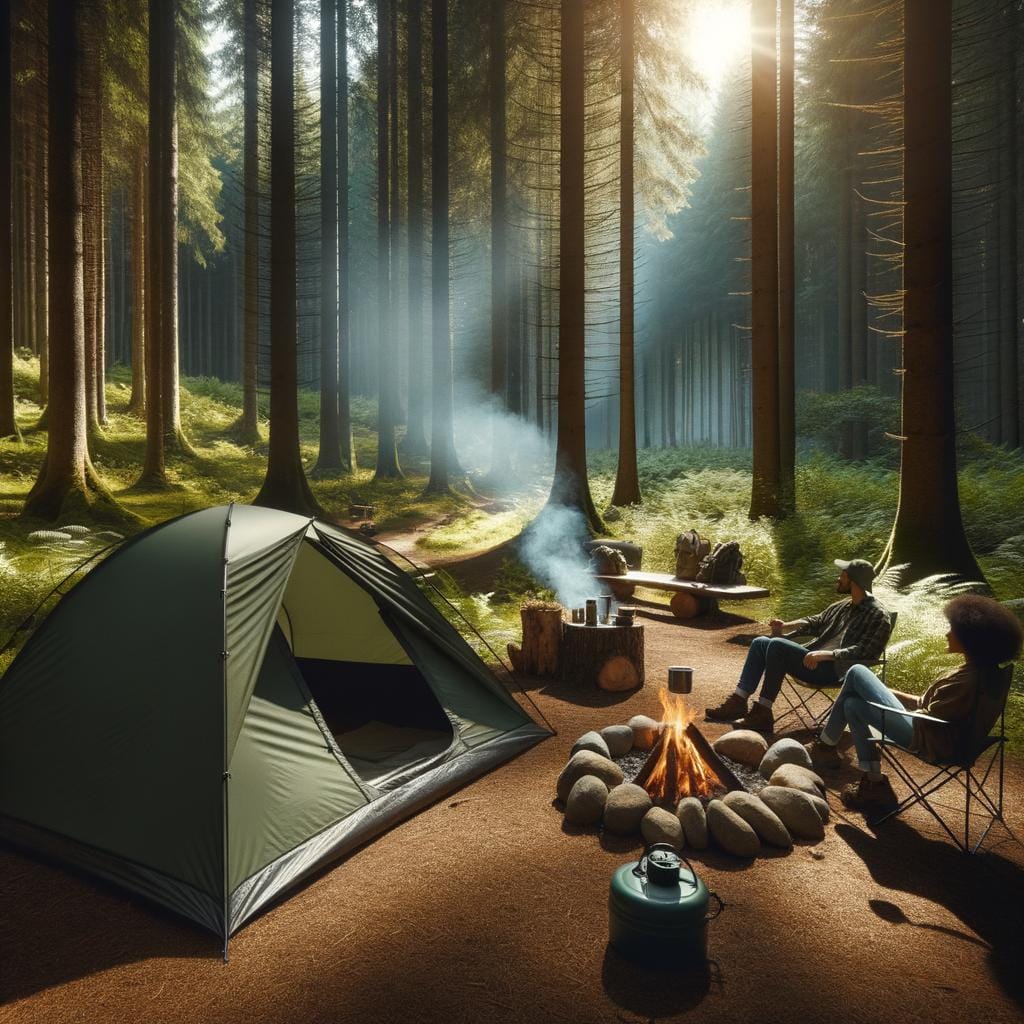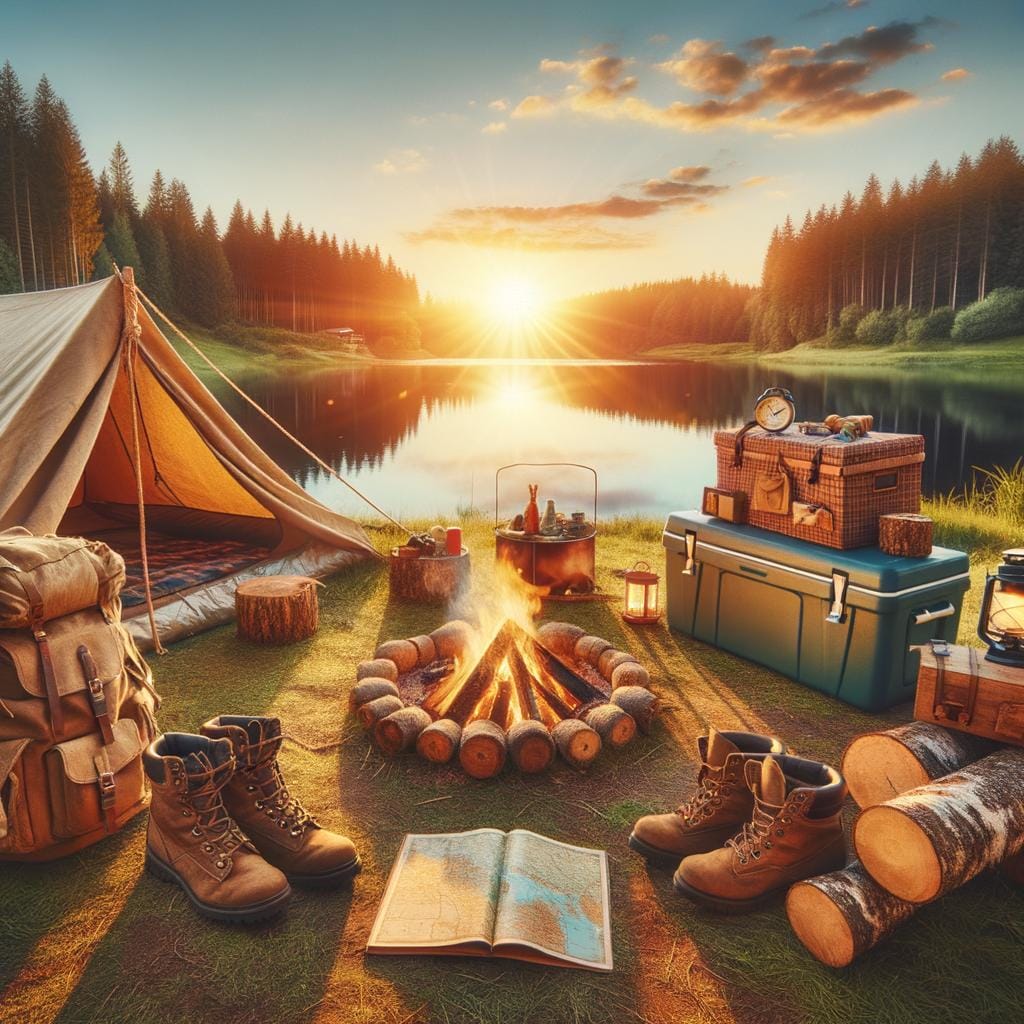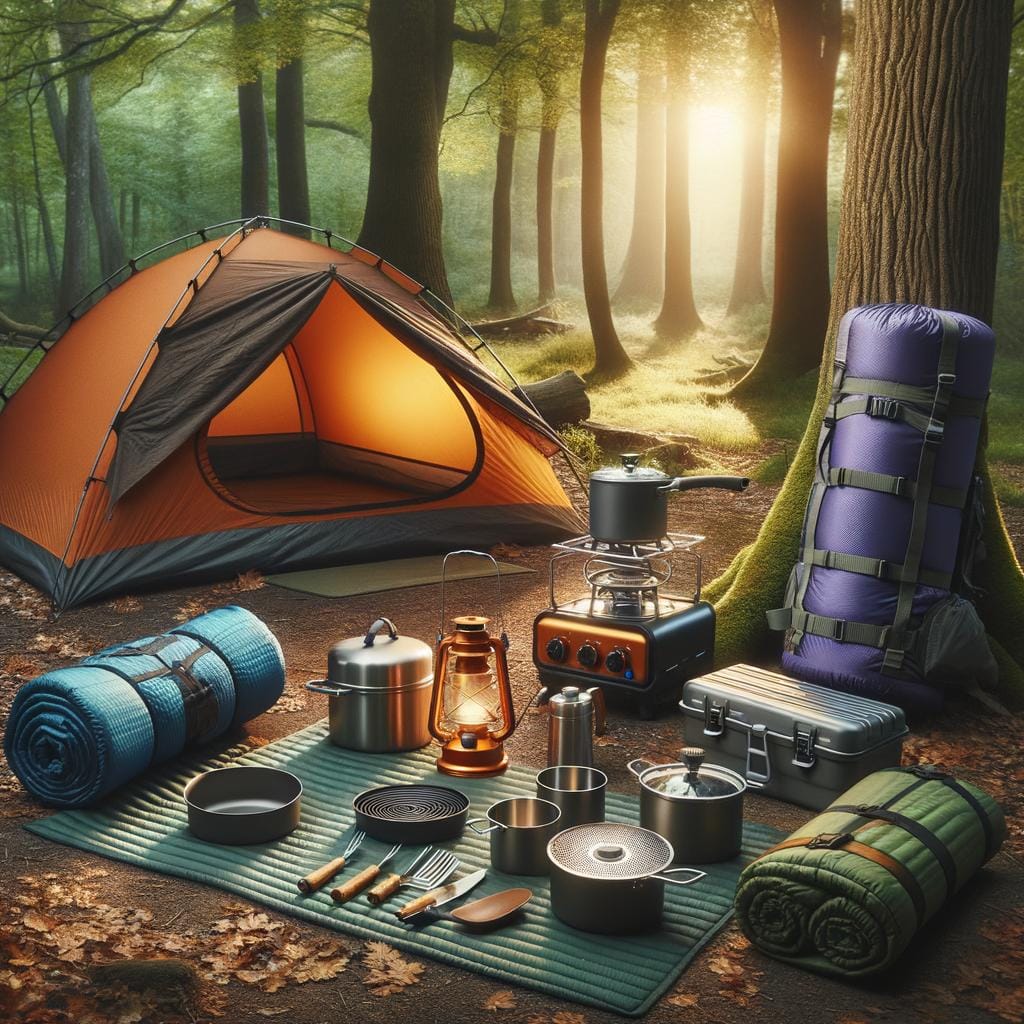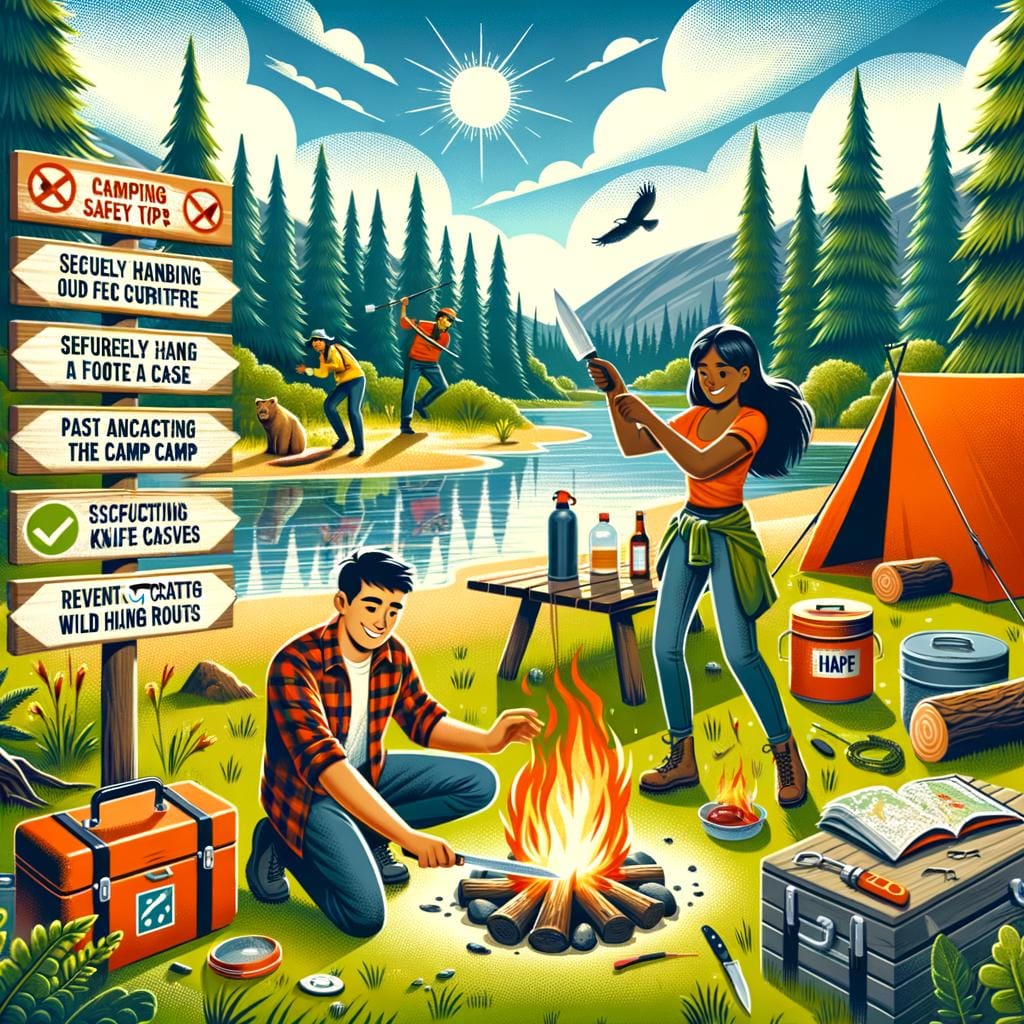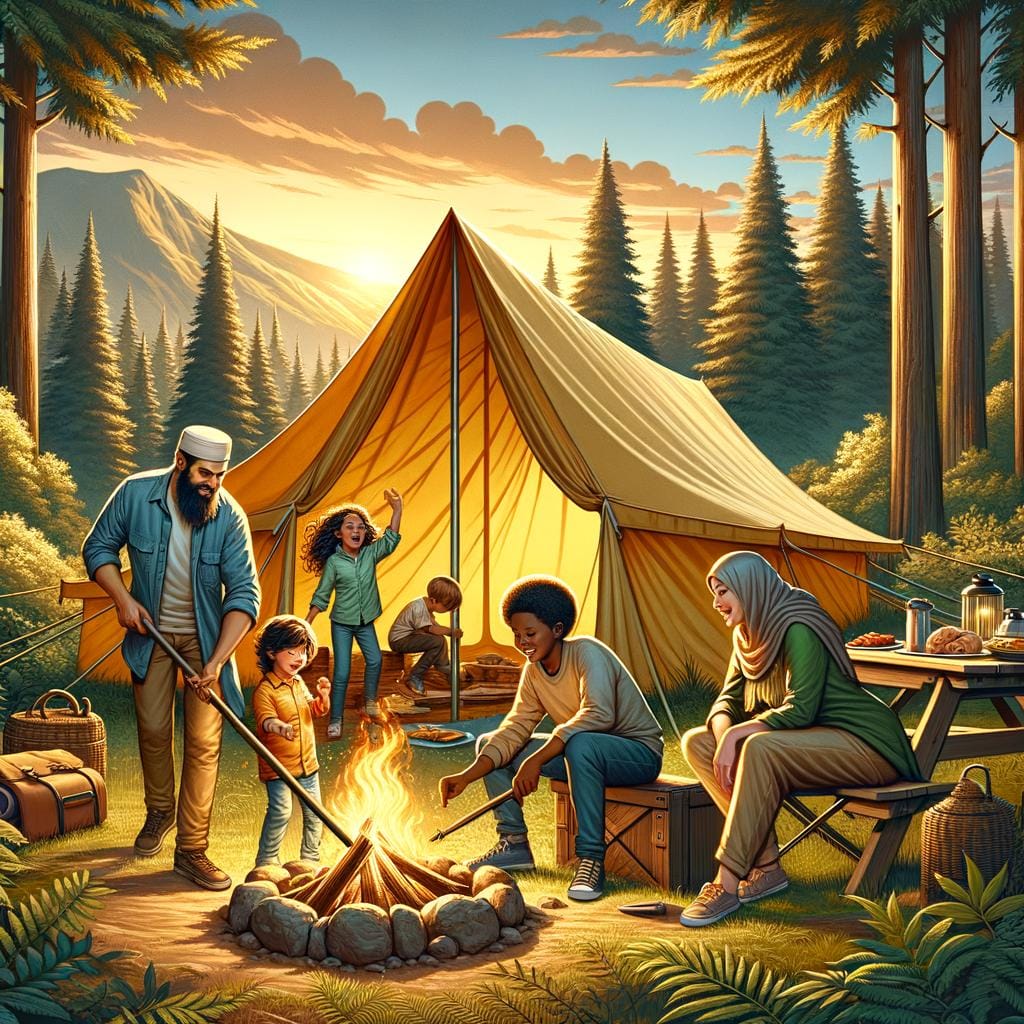Tent camping offers a unique and immersive outdoor experience for nature enthusiasts and adventure seekers alike. The simplicity of setting up a tent in the great outdoors allows for a closer connection to the environment, providing a more authentic and refreshing getaway. Whether it’s under the stars in a remote wilderness or at a designated campground, tent camping allows individuals to disconnect from the hustle and bustle of everyday life and fully embrace the tranquility of nature.
One of the key benefits of tent camping is the affordability and flexibility it offers compared to other forms of accommodation such as hotels or cabins. With just a few basic supplies, campers can pitch their tent almost anywhere, giving them the freedom to explore diverse landscapes and choose their preferred level of comfort.
Additionally, tent camping allows for a more personalized experience, as campers can select their ideal campsite based on individual preferences, whether it’s near a creek for soothing sounds or atop a mountain for breathtaking views.
Moreover, tent camping promotes physical activity and outdoor recreation, providing opportunities for hiking, fishing, stargazing, and other activities that can enhance overall well-being. Being surrounded by nature has proven benefits for mental health and stress relief, making tent camping not only an exciting adventure but also a therapeutic retreat from urban life.
In the following sections, we will delve deeper into essential gear for tent camping, choosing the perfect campsite, tips for beginners embarking on their first tent camping trip, top destinations around the world for tent camping enthusiasts, campfire cooking techniques, dealing with wildlife encounters respectfully and responsibly,, as well as proper campground etiquette to ensure an enjoyable experience for all.
Essential Gear for Tent Camping
When embarking on a tent camping trip, it is essential to have the right gear to ensure a comfortable and enjoyable outdoor experience. Here is a comprehensive guide on the necessary equipment and gear needed for a successful tent camping adventure:
- Tent: The most crucial piece of equipment for tent camping is, of course, the tent itself. Make sure to choose a tent that is appropriate for the number of people in your group and the weather conditions you anticipate encountering.
- Sleeping Gear: A sleeping bag and sleeping pad are essential for a good night’s sleep while camping. Make sure to choose a sleeping bag rated for the expected temperatures at your campsite.
- Camp Kitchen Supplies: Cooking over an open fire or portable stove can be a fun part of the camping experience. Pack cookware, utensils, plates, and cups suitable for cooking meals outdoors.
In addition to these basics, there are other important items that should not be overlooked when packing for a tent camping trip:
- First Aid Kit: Accidents happen, so it’s important to have a well-stocked first aid kit on hand for any minor injuries that may occur.
- Lighting: Headlamps, flashlights, lanterns, or string lights can illuminate your campsite after dark and make navigating around easier.
- Camping Furniture: Folding chairs, tables, or hammocks can add comfort and convenience to your campsite setup.
Being prepared with the right gear will not only make your tent camping trip more comfortable but also enhances safety and overall enjoyment amidst nature. Remember to double-check your packing list before heading out to ensure you have everything you need for a successful adventure in the great outdoors.
Choosing the Perfect Campsite
When it comes to tent camping, one of the most crucial decisions you’ll make is choosing the perfect campsite. The location can truly make or break your camping experience, so it’s important to take some factors into consideration before pitching your tent.
Firstly, think about the type of scenery you prefer – whether you’re looking for a beachside spot, a forested area, or a mountain view. This will dictate the ambiance of your camping trip and enhance your overall enjoyment.
Another critical aspect to consider when selecting a campsite for tent camping is the proximity to amenities. If you’re new to camping or prefer a bit more comfort, choosing a site near bathrooms, water sources, and even electricity hookups may be beneficial. On the other hand, if you’re seeking a more rugged and remote experience, opting for a primitive campsite away from these conveniences could offer a greater sense of adventure and connection with nature.
Furthermore, pay attention to the layout and terrain of the campsite. Look for level ground to set up your tent comfortably without any unwelcome slopes or rocks underneath. Consider natural features like trees or bushes that can provide shade during hot days or protection from wind.
Additionally, assess the drainage of the site – you wouldn’t want your tent flooded in case of rain. By taking these factors into account and carefully selecting your campsite, you can ensure a pleasant and relaxing tent camping experience.
| Aspect | Consideration |
|---|---|
| Scenery | Beachside view? Forest ambiance? Mountain backdrop? |
| Amenities | Proximity to bathrooms, water sources, electricity hookups |
| Terrain | Level ground, natural shade/shelter, good drainage |
Tent Camping Tips for Beginners
Tent camping is a fantastic way to experience the great outdoors and connect with nature. For beginners, it can seem like a daunting task, but with the right preparation and knowledge, it can be a rewarding experience. Here are some helpful tips for those new to tent camping, including setting up camp, meal preparation, and safety precautions.
Setting Up Camp
One of the most important aspects of tent camping is setting up your campsite properly. Make sure to choose a flat and level ground for pitching your tent to ensure a comfortable night’s sleep. Clear the area of any rocks, sticks, or debris that may puncture your tent floor.
Remember to also consider wind direction when setting up your tent so you can avoid any unexpected surprises during the night. Additionally, make sure to practice setting up your tent before heading out on your trip to avoid any frustrations once you arrive at your campsite.
Meal Preparation
When it comes to meal preparation while tent camping, simplicity is key. Opt for easy-to-make meals that require minimal ingredients and equipment. Consider prepping some meals in advance or investing in freeze-dried meals for convenience.
Don’t forget to pack essential cooking utensils such as a portable stove or grill, pots and pans, utensils, plates, and cups. Remember to store your food properly in bear-proof containers if you’re camping in bear country to prevent unwanted visitors.
Safety Precautions
Safety should always be a top priority when tent camping. Be sure to familiarize yourself with basic first aid procedures and pack a well-stocked first aid kit. Always let someone know where you will be camping and when you plan to return as a precautionary measure in case of emergencies. Follow campground rules and regulations regarding fire safety and wildlife encounters. It’s also advisable to bring along extra layers of clothing for unexpected changes in weather conditions.
By following these beginner tips for tent camping, you’ll be better prepared for your outdoor adventure and can focus on enjoying all that nature has to offer while creating lasting memories along the way.
Top Tent Camping Destinations
Tent camping offers a unique opportunity to immerse oneself in nature and disconnect from the hustle and bustle of everyday life. The experience of sleeping under the stars, waking up to the sounds of birds chirping, and feeling the fresh air on your face is truly unparalleled. Whether you prefer mountains, beaches, forests, or deserts, there are countless breathtaking locations around the world that are perfect for tent camping.
The Rocky Mountains, USA
One of the most iconic tent camping destinations in the world is the Rocky Mountains in the United States. Stretching over 3,000 miles from Canada to New Mexico, this majestic mountain range offers a variety of campgrounds with stunning views and ample recreational activities. Whether you’re an experienced hiker looking to conquer a challenging trail or simply want to relax by a serene alpine lake, the Rocky Mountains have something for everyone.
Patagonia, Argentina/Chile
For those seeking a more remote and adventurous tent camping experience, Patagonia in South America is a must-visit destination. With its rugged landscapes, dramatic glaciers, and diverse wildlife, Patagonia is a paradise for outdoor enthusiasts. Campsites in this region offer unmatched beauty and tranquility, making it an ideal spot for those looking to escape the crowds and reconnect with nature.
No matter where you choose to pitch your tent, tent camping allows you to fully appreciate the natural beauty that surrounds you. From starlit skies and awe-inspiring sunsets to vibrant flora and fauna, every moment spent in nature while tent camping is an opportunity to create lasting memories and forge a deeper connection with the great outdoors.
So pack your gear, pick a destination that speaks to your soul, and embark on an unforgettable tent camping adventure that will leave you feeling rejuvenated and inspired.
Campfire Cooking
Another option for campfire cooking is using a cast iron skillet or Dutch oven to make a wide range of meals, from breakfast scrambled eggs to dinner casseroles. Cast iron cookware is durable and retains heat well, making it perfect for cooking over a campfire.
Additionally, using skewers or roasting sticks can be a fun way to cook food like hot dogs, kebabs, or even cinnamon rolls over the flames. These simple yet versatile cooking methods add an element of excitement and satisfaction to every meal enjoyed during a tent camping trip.
To elevate your campfire cooking experience even further, consider prepping some ingredients at home before your trip. Pre-cut vegetables, marinated meats, or pre-mixed spices can streamline the cooking process at the campsite and allow you more time to relax and enjoy nature.
Don’t forget to pack essentials like oil for greasing pans, seasonings for flavoring dishes, and utensils for handling food while cooking over the fire. With a little preparation and creativity, you can create delicious meals that will nourish both your body and soul during your tent camping adventure.
| Advantages | Details |
|---|---|
| Exciting Element | Campfire cooking adds an exciting element to the tent camping experience. |
| Foil Packet Cooking | One popular method is foil packet cooking – ingredients are wrapped in foil and cooked directly in the fire. |
| Cast Iron Cookware | Using a cast iron skillet or Dutch oven allows for a wide range of meals over a campfire due to its durability and heat retention. |
Dealing With Wildlife
When embarking on a tent camping adventure, it is important to remember that you are stepping into the territories of various wildlife species. Interacting with wildlife can be a magical experience, but it is crucial to do so safely and respectfully. Here are some essential tips on how to navigate encounters with wildlife while tent camping:
- Research Wildlife in the Area: Before heading out on your tent camping trip, take the time to research the types of wildlife that inhabit the region. Understanding their behaviors and habits can help you better prepare for potential encounters.
- Keep Your Distance: While it may be tempting to get up close for that perfect photo opportunity, it is vital to maintain a safe distance from wildlife. Approaching too closely can provoke animals and lead to dangerous situations.
- Proper Food Storage: To avoid attracting unwanted attention from wildlife such as bears or raccoons, make sure to store all food items securely in animal-proof containers or hang them high in a tree away from your tent.
Remember, wildlife should be observed from a distance and respected in their natural environment. By following these guidelines and approaching encounters with caution and respect, you can enjoy a harmonious coexistence with the animals during your tent camping trip. Always prioritize safety for both yourself and the creatures that call the great outdoors their home.
Tent Camping Etiquette
Tent camping is not just about enjoying the great outdoors and connecting with nature; it also involves being considerate of others and following proper campground etiquette. By respecting the environment, other campers, and wildlife, you can ensure a pleasant experience for everyone involved.
One essential aspect of tent camping etiquette is keeping noise levels to a minimum, especially during quiet hours. This allows everyone to relax and enjoy the peaceful surroundings without disturbances. Additionally, cleaning up after yourself and leaving your campsite better than you found it is crucial in preserving the beauty of the natural landscape for future campers to enjoy.
Another important guideline for tent camping etiquette is being mindful of your impact on the environment. This includes properly disposing of trash, using designated fire pits for campfires, and following Leave No Trace principles to minimize your footprint. By following these simple but vital rules, you can help protect the wilderness and ensure that future generations can continue to experience the joys of tent camping in pristine outdoor settings.
In conclusion, practicing good tent camping etiquette not only enhances your own experience but also contributes to a positive atmosphere for all campers. Respect for nature, consideration for others, and responsible behavior are key components in creating a harmonious environment while enjoying the beauty of the great outdoors through tent camping. Remember, by following these guidelines and showing respect towards fellow campers and wildlife, you can make your next tent camping trip a memorable and enjoyable one.

An avid outdoor enthusiast, writer, and environmental advocate who has spent over two decades exploring the world’s most breathtaking landscapes. With a background in environmental science and a passion for adventure, Frances combines her love for nature with her talent for storytelling to inspire others to embark on their own outdoor journeys.

